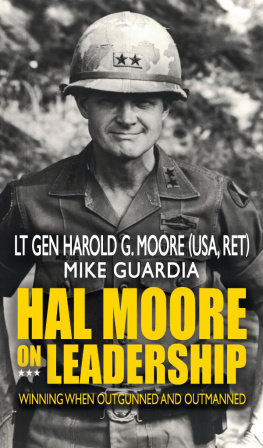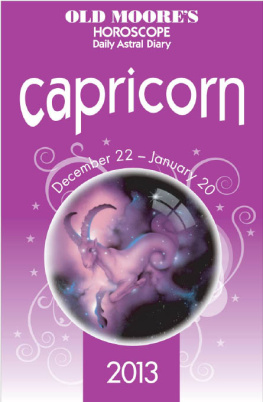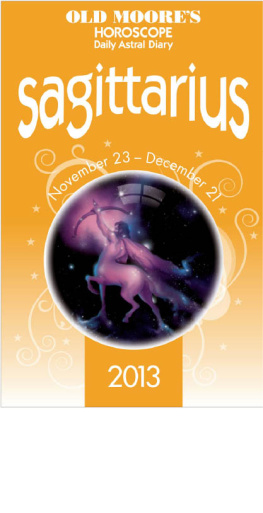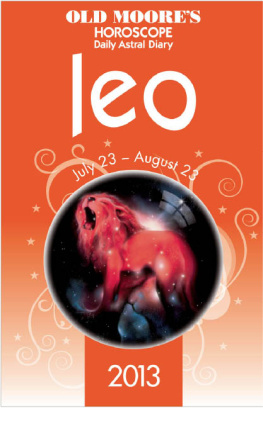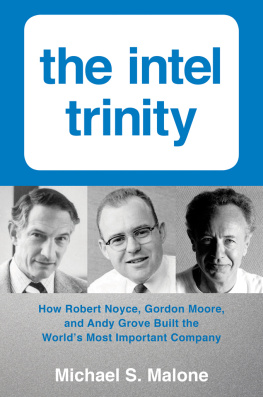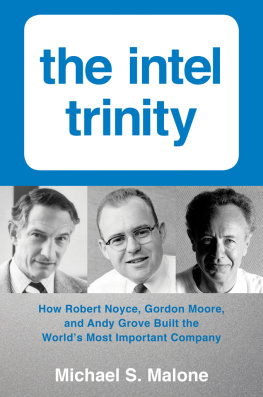MORE ADVANCE PRAISE FOR MOORES LAW
Finally, Gordon Moore gets the biography he deserves! One of the foremost pioneers of the digital revolution, he is a visionary, engineer, and revered leader. His law defined and guided the growth of computing power, and his business acumen helped to create Silicon Valley. This is an inspiring and instructive tale of how brilliance and leadership can coexist with humility and decency in a truly extraordinary person.
WALTER ISAACSON,
author of Steve Jobs
Moores Law is not only a definitive biography of a legendary figure in computing, but a fascinating account of the forces that triggeredand sustainthe digital revolution that has changed life for all of us.
STEVEN LEVY,
author of Hackers and In the Plex
If you think you know Moores Law, prepare to be enlightened. If you think you know Gordon Moore, prepare to be enthralled. And if all of this is new to you, prepare for the ride of your life. This is the definitive story of the central theorem of the digital age, the man behind it, and its ongoing impact on us all.
JOHN HOLLAR,
President & CEO, Computer History Museum
With care and color, Moores Law tells us how Gordon Moore, at the center of the IT revolution, applied his knowledge and insight in a quiet and effective way. When Gordon talked, everyone listened.
GEORGE P. SHULTZ, former US Secretary of State and
Thomas W. and Susan B. Ford Distinguished Fellow at the
Hoover Institution, Stanford University
Gordon Moores story is one of disruptive innovation on the grandest scale, practiced by a brilliant technologist. Now at last we have the book that tells the story. Moores Law offers a compelling, absorbing account of Silicon Valley, and its role in human progress.
CLAYTON CHRISTENSEN,
author of The Innovators Dilemma
A remarkable book about a remarkable man, told with great style and refreshing candor.
CARVER MEAD, winner of the
National Medal of Technology and Innovation
Almost everyone knows Moores Law. Almost no one knows the Moore behind this law. Finally a book describing the quiet, unassuming technology godfather of Silicon Valley. A great read about a great man whose work truly changed the world.
CRAIG R. BARRETT,
Former CEO and Chairman, Intel Corporation
Arnold Thackray and his co-authors integrate business history with the history of science and technology with great success, rendering this biography of Silicon Valleys most important revolutionary a captivating and deeply illuminating read. Moores Law is also a signal contribution to the study of California history.
DAVID A. HOLLINGER,
Preston Hotchkis Professor of History, Emeritus,
University of California, Berkeley
This marvelous and well-written book about Gordon Moore captures his seminal role not only in Fairchild Semiconductor and Intel Corp, but also in the saga of Silicon Valley. The authors tell how Intel was managed into one of the great successes of all time. Gordon Moore in his quiet, non-threatening, and brainy manner created an atmosphere in which new ideas flourished and growth was encouraged. Moores Law, his remarkable insight, has proved prescient. Woven into this story is the modest and loving relationship between Gordon and Betty, his wife of 65 years.
ARTHUR ROCK,
Co-Founder of Silicon Valley venture capital firm
Davis & Rock and original investor of Fairchild Semiconductor
A remarkable insight into the man who did so much to make Silicon Valley.
DAVID MORGENTHALER,
founder of Silicon Valley venture capital firm
Morgenthaler Ventures


Copyright 2015 by Arnold Thackray
Published by Basic Books,
A Member of the Perseus Books Group
All rights reserved. Printed in the United States of America. No part of this book may be reproduced in any manner whatsoever without written permission except in the case of brief quotations embodied in critical articles and reviews. For information, address Basic Books, 250 West 57th Street, 15th Floor, New York, NY 10107.
Books published by Basic Books are available at special discounts for bulk purchases in the United States by corporations, institutions, and other organizations. For more information, please contact the Special Markets Department at the Perseus Books Group, 2300 Chestnut Street, Suite 200, Philadelphia, PA 19103, or call (800) 810-4145, ext. 5000, or e-mail .
A catalog record for this book is available from the Library of Congress.
ISBN: 978-0-465-05562-3 (e-book)
10 9 8 7 6 5 4 3 2 1
For Betty
We are bringing about the next great revolution in the history of mankindthe transition to the electronic age.
GORDON MOORE, 1976
CONTENTS


Silicon Valley, US.
COURTESY ROBERT SCHULTZ.
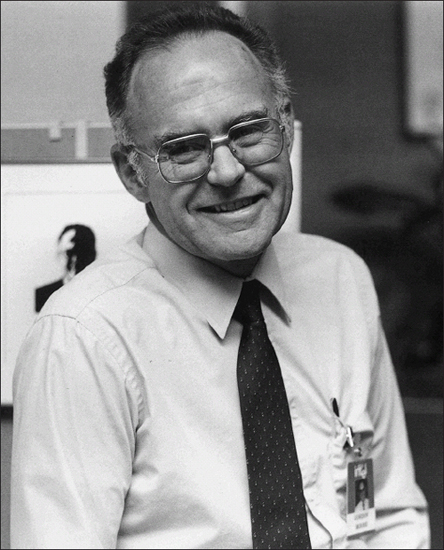
Gordon Moore.
SOURCE: COURTESY CAROLYN CADDES.
The call proved fateful. At the time, it seemed merely unusual. In February 1956, not even scientific celebrities routinely telephoned long distance, especially if it was a simple matter of contacting an unknown young nerd.
The celebrity was William Shockley, renowned researcher and defense consultant, the nerd a postdoctoral chemist named Gordon Moore, in Silver Spring, Maryland. Moore had just arrived home from work at a government-funded, Cold Waroriented lab. He was tired and more than ready for the dinner his stay-at-home wife, Betty, had prepared. One-year-old son Ken was in his high chair. The cat was nosing its bowl. It was an ordinary end to an ordinary day.
The phone rang. Answering machines were unknown, so Moore perforce picked up: Hello? The response, deep and confident: This is Shockley. Moore knew the name right away. William Bradford Shockley was a certified scientific god, revered as one of the worlds leading solid-state physicists, coinventor of the eras most promising breakthrough in electronicsthe transistorfor which he would shortly be awarded the Nobel Prize. The transistor was a wholly new type of on-off switch, a semiconductor, offering tantalizing possibilities in military applications. Moore, who had recently heard Shockley lecture at the Cosmos Club in nearby Washington, DC, was shocked to realize a star was on the line.
But why was Shockley calling? The reason quickly emerged. His unabashed boast was that he was hiring the best and brightest young PhDs to join his venture in the little-known town of Mountain View, California. The aim? To perfect and mass-produce a novel silicon-based version of the transistor. This minute, solid device, no bigger than a fingernail, would be composed of silicon treated chemically in complex ways. It promised unprecedented standards of reliability to electronic devices. Shockley was counting on the reality that, in high-stakes defense markets, performance always trumped mere price. To accomplish his ambition, he urgently needed a competent chemist. He knew that Moore had recently turned down a position at a nuclear weapons lab in California. Might this young scientist be interested in the race to produce a reliable silicon transistor instead?
Next page

